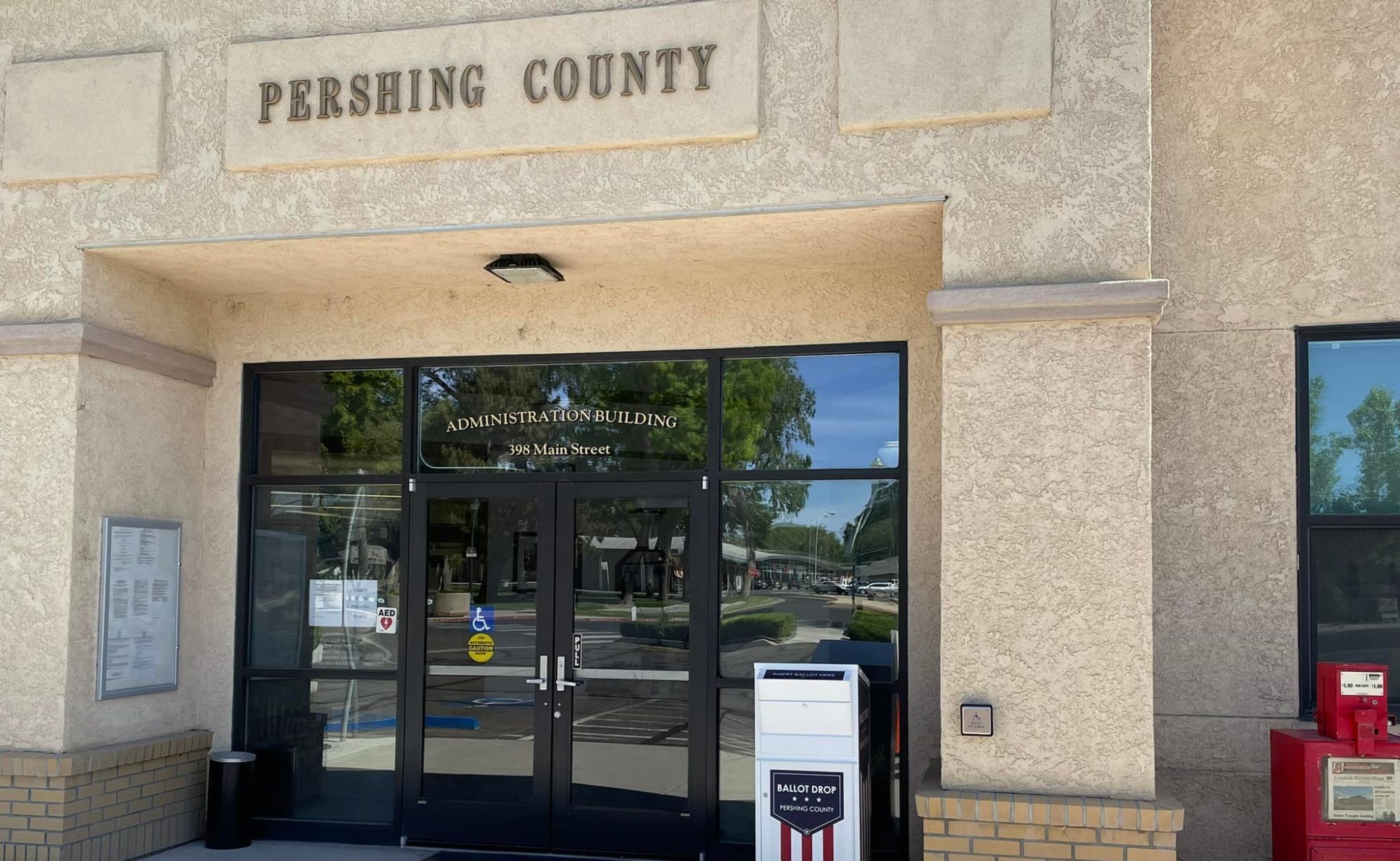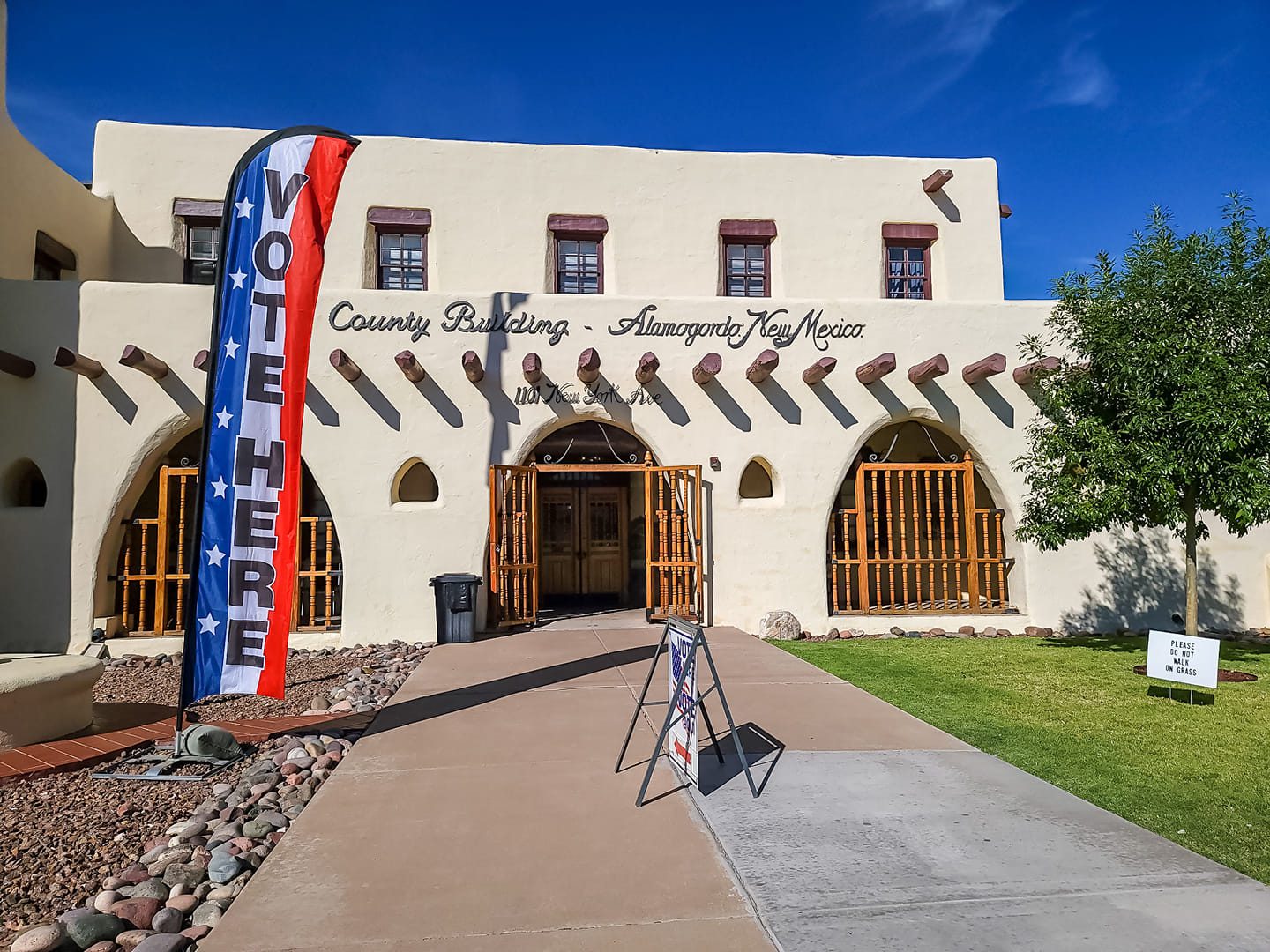Pennsylvania GOP Doubles Down on Election Deniers, Including a Fake Trump Elector
Nearly all county election officials who have amplified false fraud conspiracies prevailed in Tuesday’s primaries. But in Kentucky, the secretary of state defeated similar candidates.
Daniel Nichanian | May 17, 2023


After nearly all Pennsylvania counties certified their primary results last year, six Republican commissioners spread out across three counties stood in the way of completing the process. Claiming they didn’t agree with the state’s rules for mail-in ballots, they insisted on excluding valid ballots and refused to certify the results—adding Berks, Fayette, and Lancaster to a select group of conservative counties nationwide that disrupted vote counts last year. The state dragged them to court, ultimately getting them to abide by state rules, include those ballots, and certify the election.
Still, all six commissioners secured the Republican nominations on Tuesday in their bids to serve another four years in these offices.
Should they prevail again in November’s general election—and these are all red-leaning counties—they’ll retain control of local election administration during the 2024 presidential cycle.
Duncan Hopkins, a local organizer with the group Lancaster Stands Up who confronted Lancaster County GOP commissioners Ray D’Agostino and Josh Parsons at a public meeting last fall about their ties to election deniers, is alarmed by this landscape.
“We are looking at elected officials—at the highest levels, I’m thinking of former President Trump, all the way down to county election board officials—and we are seeing that they will work very hard to find a way to take votes away from people, even from people who voted for them, just to prove that it’s something that they can do legally,” Hopkins told Bolts on Wednesday. “It’s distressing.”
In most of Pennsylvania, county commissioners double as local boards of elections, with duties ranging from supervising voter registration to tabulating ballots. Their role in certifying election results has emerged as a critical lynchpin in Trump allies’ efforts to take over election administration. “Sometimes the vote counter is more important than the candidate,” Trump told Pennsylvania Republicans last year. But these county officials have broad effects on voting rights beyond the count since they shape people’s access to different ways of voting.
D’Agostino and Parsons last year voted to remove Lancaster County’s only drop box for mail-in ballots, for instance, and Hopkins is concerned by local commissioners’ crusade against mail voting, which is central to Trump’s own lies about fraud. “There are a fair number of people who in the Republican Party have tried to make voting more difficult by taking away ballot drop boxes, making it more difficult to vote by mail,” he said.
D’Agostino and Parsons faced no opponent in Lancaster’s Republican primary on Tuesday. In Berks County, incumbents Christian Leinbach and Michael Rivera prevailed against three challengers, while Fayette County incumbents Scott Dunn and Dave Lohr won against two.
Similar results played out throughout the state. Local GOP officials have attempted to block election certification in a handful of other counties since 2020. And in an extensive investigation of public statements made by county commissioner candidates, Votebeat and Spotlight PA identified additional Republicans who have amplified false conspiracies about voter fraud.
In total, 20 incumbent commissioners were on the ballot this week after supporting the Big Lie in either word—repeating denialist rhetoric in public statements—or else in deed, by refusing to certify a recent election. Eighteen of them won their Republican primaries, most of them in contested races.
In Allegheny County, home to Pittsburgh, Councilmember Samuel DeMarco was unopposed for the GOP nomination on Tuesday, three years after voting to not certify the local presidential results and even signing up as a fake Trump elector.
DeMarco, in fact, is a very rare elected official anywhere in the country who agreed to add his name to alternate elector lists willing to declare their state’s electoral votes for Trump despite the Republican’s loss in their state. DeMarco was interviewed by the FBI last year as part of an investigation into these schemes; he defended himself, saying that the list was only meant to be used in case the courts overturned the results. “When we did not win in court, the matter ended,” he told TribLive last year.
The Trump campaign’s lawsuits themselves were on flimsy grounds, and numerous judges in 2020 expressed alarm that they were being asked to disenfranchise millions of voters. DeMarco, who is also the chair of the local Republican Party in Allegheny County, Pennsylvania’s second most populous county, did not return a request for comment.
Joe Gale, a commissioner in Montgomery County, is one of the two exceptions. Gale voted against certifying election results in 2020, though as the sole Republican on his county board he was not able to block them. “There is no way to verify the authenticity of one half of the votes cast this year,” he said at the time, mirroring lies spread by Trump allies about the results. He doubled down, later opposing certifying the 2022 elections as well. Gale was ousted on Tuesday, finishing third in the Republican primary when only the first two vote-getters move forward to the general election.
But even that vote was not a complete repudiation of election denialism; the Republican who got the most votes in Montgomery, Thomas DiBello, has himself repeatedly amplified false allegations of widespread voter fraud, as uncovered by Spotlight PA and Votebeat.
Another election-denying commissioner who lost on Tuesday is Stuart Ulsh of Fulton County, a small and rural jurisdiction. Fulton was Pennsylvania’s only known county whose commissioners agreed to let a private group, connected with Trump lawyer Sydney Powell, conduct a so-called audit of voting equipment. State officials then decertified the county’s voting equipment, saying they could no longer be sure it was secure since a third-party had toyed with the machines.
Ulsh, who later testified in the legislature in defense of this scheme, was eliminated on Tuesday. But his colleague Randy Bunch, who approved that audit alongside Ulsh, came in first in the Republican primary and will move to the general election alongside another Republican.
Other counties that feature incumbent commissioners who amplified false fraud conspiracies include Beaver, Butler, Juniata, Lackawanna, Schuylkill, Washington, and Wyoming.
In the night’s biggest loss for an election denier, state judge Patricia McCullough fell short in her bid to join the state supreme court, losing in the GOP primary by seven percentage points.


McCullough gave Trump one of his brightest legal wins in late 2020 when she blocked the certification of state results, only to be quickly disavowed by the supreme court. “I was the only judge in the entire country to enter an order to halt the certification of the 2020 presidential election results,” she later said, boasting of her boost to “Stop the Steal” efforts.
Carolyn Carluccio, the Republican who defeated McCullough on Tuesday, has herself amplified false allegations of widespread voter fraud, telling a Republican audience that a bipartisan law that expanded mail-in voting in the state had undermined the integrity of elections. Carluccio did not answer a Bolts request for comment, and she also dodged a question on what she meant by the Philadelphia Inquirer.
Throughout the state, Tuesday’s elections were marked by relatively low turnout, as is typical for off-year elections. Roughly 820,000 Republicans voted in the judicial primary on Tuesday, which is just 60 percent of the electorate that participated in the GOP primaries 12 months ago.
Carluccio will face Democratic nominee Daniel McCaffrey in November. The winner will sit on Pennsylvania’s supreme court and hear potential election cases during the 2024 cycle. Democrats will retain a majority on the court no matter the outcome, though a loss would narrow their edge to 4-3. This general election is expected to be highly competitive.
But in the counties where GOP commissioners tried to block certification in recent years, most of the incumbents who won their primaries yesterday are likely to have a clear edge in November. Trump carried Berks, Fayette, and Lancaster counties by large margins in 2020.
Still, there is recent history to suggest that Pennsylvania Democrats can be competitive in red-leaning territory when facing a far-right candidate; Berks swung blue last year in the governor’s race, which featured election denier Doug Mastriano as the Republican nominee. In each of these counties, the two Democratic and two Republican nominees will run on one ballot, and the top three vote-getters will become commissioners.


DeMarco, the fake Trump elector running for re-election in Allegheny County, is also highly likely to return for another term. Under Allegheny’s complex rules, Democrats and Republicans each nominate only one candidate to complete for two at-large council seats in the general election, so they’re each sure to win unless an independent also enters the race. Local election observers told Bolts that they are not aware of an independent running at this time, though the deadline for one to file is Aug. 1.
“Since it is these local officials who are responsible for administering our elections and certifying the results, it’s critical for Pennsylvanians to not only be aware of this dangerous trend spreading through their cities and counties, but to know who the officials are who could potentially be a threat to democracy,” says Jenna Lowenstein, executive director of Informing Democracy, an organization that released its own report on local officials in Pennsylvania and elsewhere who have amplified the Big Lie.
The results in Pennsylvania’s Republican primaries on Tuesday stood in marked contrast with those in Kentucky, the only other state with statewide elections this week.
Kentucky Secretary of State Michael Adams easily won the Republican primary, defeating two election deniers who’d spread false election conspiracies with 64 percent of the vote. Over his tenure, Adams partnered with Democratic Governor Andy Beshear to support election changes that made it easier for Kentuckians to vote early and to vote by mail.
“I’m really proud that Kentucky Republicans ratified the things that we’ve done to make voting easier at a time that other red states have gone backwards,” Adams told Bolts on Wednesday after his victory. “I’ve got hundreds of thousands of Republicans that use those mechanisms to their satisfaction, and I just didn’t think that they were going to punish me for that.”
Adams will face Buddy Wheatley, a former Democratic lawmaker who promises to champion reforms to increase turnout, in the general election.
In the run-up to the Republican primary, Adams denounced the spread of conspiracies about the 2020 elections and he himself framed this race as a referendum on election denialism.
“I’ve seen my colleagues in the same job in other states try to feed the tiger,” he told Bolts. “I’ve seen them make decisions that I think were probably not good for their voters to try to survive a primary and all it does is just validate the conspiracy theories. You can’t cave.” He defended his decision to keep Kentucky in ERIC, a national consortium to clean voting rolls that a wave of GOP-led states have quit since the start of the year.
Adams acknowledges that it may be easier to push back against the Big Lie in a state where Republicans already dominate, compared to a place like Pennsylvania where ”the stakes are higher.” But he cast election denialism as a national crisis, pointing to threats in places that aren’t as competitive in presidential elections such as Tennessee or New Mexico, where some GOP officials tried to block local certifications last year.
“This is not a six state problem, it is a 50-state problem now,” he said.








